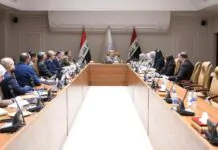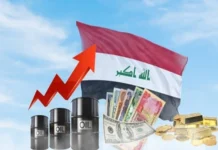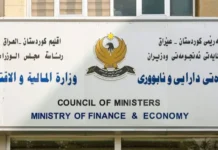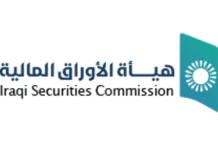The Dollar Approaches The Official Rate: A Real Reform Or A Temporary Trick?
July 22, 2025 Last updated: July 22, 2025 Al-Mustaqilla/- In a move that suggests a “shift” in the government’s policy toward the dollar crisis, Mazhar Mohammed Saleh, the financial advisor to Prime Minister Mohammed Shia al-Sudani, revealed five factors that he said would lead to narrowing the gap between the official and parallel rates, paving the way for what he described as a “matching” phase between the two rates.
But the most important question is:
Is what is happening real reform?
Or is it merely “economic makeup” that masks a fragile reality?
The official exchange rate, set by the Central Bank at 132,000 dinars per $100, is now approaching the parallel market rate of 139,000 dinars.
This decline is viewed by some as a positive sign, while others view it as a “politicized” and temporary move to calm the street ahead of upcoming political and economic events.
Five factors or five pressure cards?
The government’s primary consideration is preventing dollarization, particularly in the real estate sector.
While this may sound like a good move in theory,
it raises questions about its implementation in a market teeming with informal transactions.
The second factor relates to transfers via global correspondent banks after the central bank window closed.
However, observers question:
Are these transfers truly available to everyone,
or are they restricted to specific names and companies?
The third factor is the entry of small traders into the official transfer window,
a step whose effectiveness on the ground is questioned by many due to the red tape and bureaucracy.
The fourth factor revolves around the expanding use of electronic cards, a move that is hampered by technical infrastructure and a deeply ingrained cash culture.
The fifth factor relates to what the government calls “price defense” through cooperatives, a policy that could return Iraq to the era of “ration cards,”amid doubts about its sustainability.
Is the difference really less than 4%?
Advisor Saleh’s statements that the difference between the two rates has become “merely a transaction cost” open the door to a broad economic debate:
Can we speak of “convergence” while the parallel market persists?
Have the dollar mafias truly been eliminated?
Or have their positions merely shifted?
In conclusion: appeasement or radical treatment?
Achieving a unified exchange rate is a legitimate popular and economic demand.
However, without a comprehensive reform of the financial system, increased transparency in transfers, and ensuring fairness in cash distribution, any decline in the parallel market may prove to be nothing more than a “warrior’s rest” before another explosion. https://mustaqila.com/الدولار-يقترب-من-الرسمي-إصلاح-حقيقي-أم/
America Is Choking Off The Dollar In Iraq… And The Central Bank Is Distributing It Only To “Close Associates”!
July 22, 2025 Al-Mustaqilla/- A source said that the Iraqi market is currently witnessing a severe shortage of cash dollars, as a result of what he described as a “well-considered” move by the Central Bank of Iraq,
which decided to restrict dollar transactions to a limited number of private and government banks,
while preventing or restricting the flow of hard currency to exchange offices and open markets.
According to the source, who spoke to Al-Mustaqilla on condition of anonymity, this measure is an extension of a previous US decision to halt cash dollar transfers to Iraq.
This decision is part of a regulatory effort aimed at controlling the flow of currency and preventing smuggling and money laundering, particularly after Washington identified Iraqi financial networks involved in suspicious transfers to countries subject to sanctions.
Dollar shortage crisis in the market:
The absence of cash dollars from the market has opened the door to a stifling liquidity crisis,
leading to a decline in actual demand for the US currency and
contributing to a depreciation of the exchange rate on the parallel market.
Yesterday, the dollar exchange rate recorded a significant decline, reaching 139,000 dinars for every $100, compared to previous levels of more than 143,000 dinars.
However, this “drop” in price does not reflect economic improvement as much as it indicates a shortage of supply and a contraction in commercial activity in hard currency,
at a time when a large segment of traders are turning to the Iraqi dinar in the absence of the dollar.
Dimensions of the American decision:
Washington‘s decision to halt the dollar exchange rate, while not officially announced as a punitive measure, is part of a series of pressures exerted by the US Treasury on Baghdad to regulate the financial and banking sectors and prevent the flow of dollars to countries such as Iran, Syria, and Lebanon.
These pressures have resulted in the inclusion of Iraqi banks on watch lists, the imposition of strict restrictions on foreign transfers, and a reduction in the dollar cash quota previously sent by air to Baghdad.
Are we facing a “dollar drying up” phase in Iraq?
The facts indicate that Iraq has actually begun to enter a phase that can be called the “drying up of the cash dollar,” a tactic with two objectives:
Internally: controlling the market and regulating the use of foreign currency.
Externally: appeasing Washington and avoiding sanctions or negative financial ratings. However,
this approach requires radical reforms in the banking system and ensuring comprehensive financial coverage for citizens.
Otherwise, the shortage could turn into a broader crisis that would disrupt the economy and return the market to a state of chaos and confidence in the currency. https://mustaqila.com/الدولار-في-العراق/
The US Has Stopped Sending Cash Dollars To Iraq. Is This The Beginning Of A Blockade?
July 21, 2025 Al-Mustaqillah/- Private sources confirmed that the United States has decided to completely halt cash dollar shipments to Iraq, a move described as potentially the beginning of a “financial blockade” on some Iraqi banks involved in currency smuggling and money laundering.
According to a source who spoke to Al-Mustaqilla on condition of anonymity,
Washington’s decision does not pertain to Iraq as a country, but rather targets specific banks suspected of involvement in suspicious dollar transfers to countries subject to international sanctions.
This has angered the US Treasury, prompting it to tighten controls on dollar movement within the Iraqi market.
Sudden drop in exchange rate after the decision
Remarkably, the US decision coincided with a significant decline in the dollar exchange rate in the Iraqi market. Experts interpreted this as a natural consequence of the restrictions on the circulation of cash and the prevention of its smuggling abroad.
This led to an increase in supply in the local market and a temporary decline in its price.
Government shift towards “legal dollarization”
Separately, a banking source revealed that the Iraqi government has been relying on
new mechanisms for disbursing salaries and conducting financial transactions for months.
These mechanisms involve legal invoices processed through official banks and digital platforms linked to the global financial system. This is an alternative to the paper dollar shipments previously transported into the country by air.
The source indicated that this step represents a major shift in cash liquidity management in Iraq,
making it difficult for suspicious entities to continue smuggling or manipulating the currency market.
Is this the beginning of the storm?
The US decision raises many questions about the future of dollar transactions in Iraq,
especially in light of escalating regional tensions and Washington’s tightening of financial sanctions.
Are we witnessing the beginning of a new phase of international restrictions on the Iraqi economy?
Or is this merely a technical measure against some violating banks? https://mustaqila.com/أمريكا-توقف-إرسال-الدولار-النقدي-إلى-ا/
Source: New Digital Bank In Iraq Threatened With International Sanctions Over Money Laundering
July 21, 2025 Al-Mustaqilla/- An informed source said that a new digital bank in Iraq, linked to a prominent political figure, faces international scrutiny and potential sanctions in the coming period due to serious financial cases related to money laundering and smuggling funds abroad.
The source, who spoke on condition of anonymity, confirmed to Al-Mustaqilla’s correspondent that
investigations conducted by international and security agencies revealed the bank’s involvement in suspicious financial transactions, most notably the issuance of fake bank cards used to transfer illegal funds outside Iraq.
This has sparked widespread concern within the local and international banking community.
These developments come amid mounting criticism of the Iraqi financial system, which suffers from weak oversight and is being exploited by some political parties to pursue personal interests at the expense of the national economy.
The source confirmed that sanctions will be imposed on the bank in the coming period, which could open the door to broader investigations to uncover more suspicious financial networks inside and outside Iraq.
This news raises serious questions about the transparency of the Iraqi financial sector and the possibility of achieving real reforms that put an end to the exploitation of political money among modern digital banks. https://mustaqila.com/مصدر-مصرف-رقمي-جديد-في-العراق-مهدد-بعقو/
For current and reliable Iraqi news please visit: https://www.bondladyscorner.com





